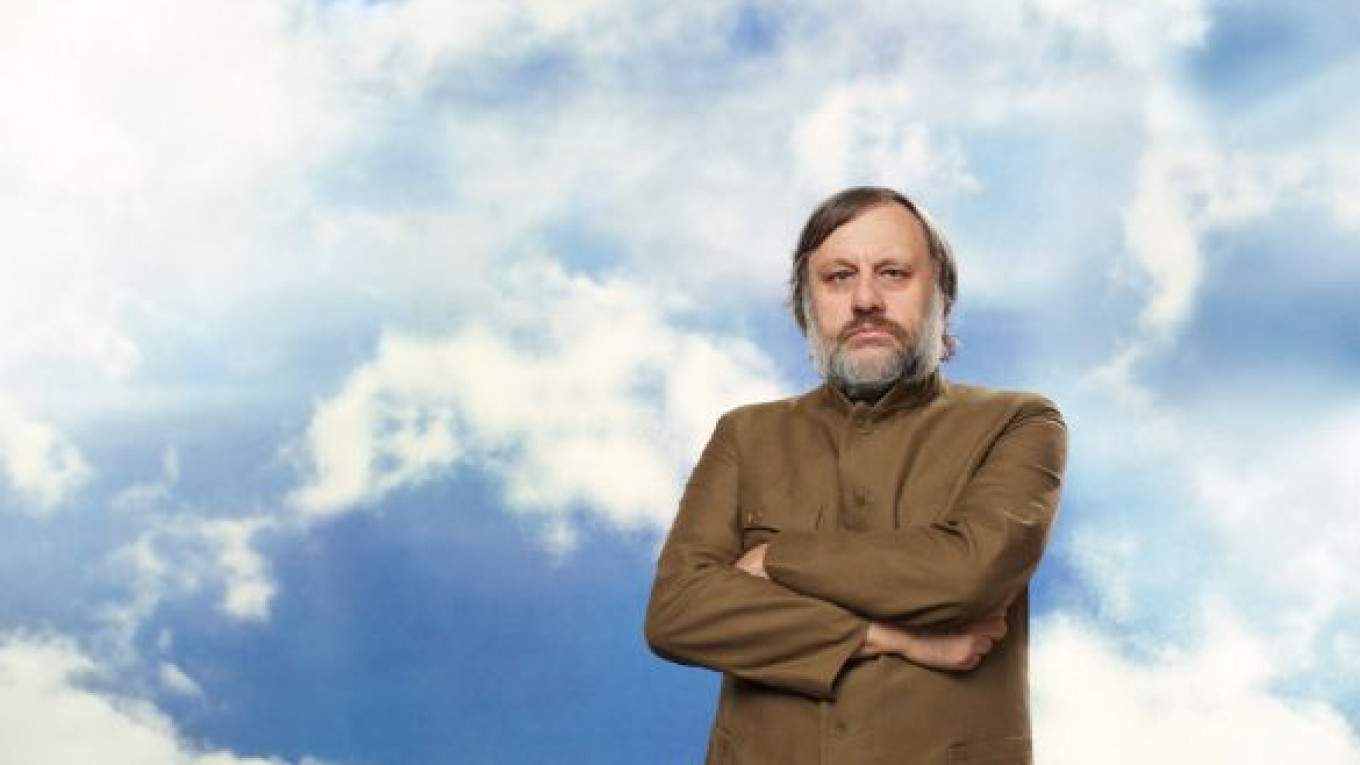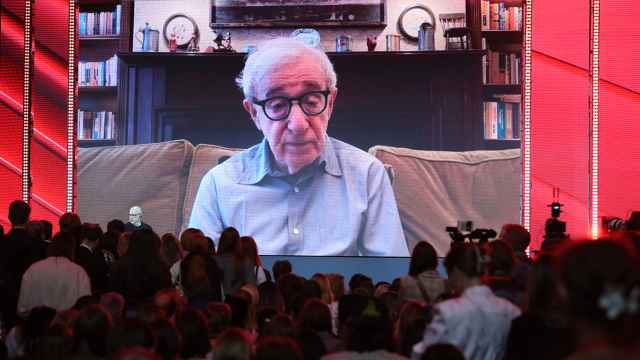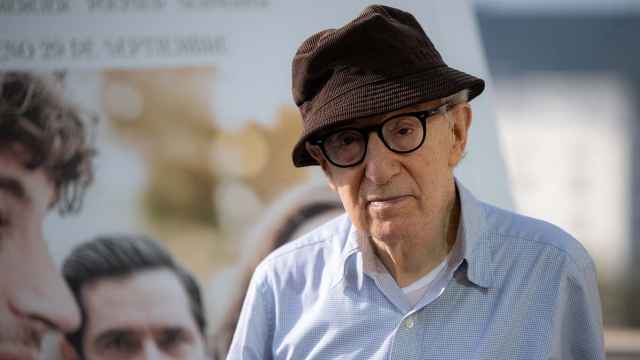"If you trust your instinct, you will never be free." So said philosopher Slavoj Zizek as he ushered us into the iconoclastic world of his and director Sophie Fiennes' new film, "The Pervert's Guide to Ideology," which opened in Moscow cinemas on Thursday.
Zizek is a phenomenon. A psychoanalyst and philosopher in the traditions of Hegel, Marx, Freud, and Lacan, he has sprung from the obscurity of Slovenian academia to international notoriety over the past two decades.
His popularity has soared thanks to an irreverent public persona and a knack for articulating complex theory through more accessible popular culture.
In this new film, just as in 2006's "The Pervert's Guide to Cinema," Zizek analyzes diverse social phenomena, including Spielberg's "Jaws," Stalinism, and the intricacies of Kinder Surprise chocolate eggs.
The "Pervert's Guide" strives to interpret and bring to our attention moments of what he calls "everyday ideology" that permeate our daily lives.
"My first point is in total disagreement with the predominant view, according to which ideology was something which basically died in 1990s," he said.
Zizek was dismissive of the idea that people live in a more pragmatic and post-ideological era since the collapse of Communist regimes at the beginning of the decade. "I think now we live in the highest period of ideology!" he exclaimed.
"The example that I always use: buy organic apples, buy biologically-grown fruit. This is more ideology. It makes us feel good, you buy organic apples, then you tell yourself "You see? I show social solidarity, I'm doing something for Mother Earth, for our environment," and so on and so on. This precisely interests me, ideology in our everyday pleasures, hatreds, and so on. Here we are really in ideology, not when you follow some great theoretical ideal, socialism, liberalism, whatever, that's b*******t. Everyday ideology interests me."
However, Zizek viewed this recognition of the impact of "everyday ideology" on day-to-day life as just a starting point.
"To get rid of ideology you must really change your life practice, it's not enough just to know," Zizek asserted, proclaiming that the complete removal of ideology from existence "can be done!"
"You just have to push it a little bit further, to make it seem so that it appears ridiculous in its character, and you can gain some distance from it," he said, going on to clarify his position on wider conspiracy-style thinking.
"I'm not this type of radical leftist paranoiac who claims, you know, we are totally manipulated, there is no way out, everything is already controlled by some hidden ideological mechanisms, no. We can break out," he challenged.
He includes in this 'everyday ideology' the desire for film and cinema, which Zizek compared to acquired tastes for alcohol, tobacco, and sex, with one difference: "In cinema you can find today's ideological trends represented, staged in their pure state," he said.
Zizek is quick to attribute the success of his own film, "The Pervert's Guide to Ideology," to the director, Fiennes. "She went through my books, she selected the material … I mean all the hard work, she lost two years of her life. For me it was very comfortable," he said.
"The idea was that we can somehow influence the broad public. The point is not to say like some sort of old Communist, 'here are the answers to your troubles,' but to raise questions much more modestly, to disturb the sleep of the people," he continued.
He stated that his intent was to encourage "the people" to critically analyze their own existing structures of belief.
"Acquiring a distance from ideology, even if it doesn't appear as a political act, always already is a deep political act," he pointed out, saying that without doing this, political engagement itself is somewhat 'superficial'.
He hoped that this encouragement might help people succeed in addressing shared social problems.
"I think that we not only have problems which we have to solve. We also have false problems … We have racism today, sexism. But often the very way we formulate the problem prevents us from really confronting it. So in this sense for me a true political engagement should begin with totally rethinking critically the way we even approach problems. And this is basically the critique of ideology."
In regards to any current global ideological situation, Zizek concluded that the world could learn a great deal from the Russian experience, and that it may yet become a sort of 'model'.
"I even think that in the new type of more authoritarian capitalism, capitalism like the one developed now in Russia, you still have your small personal freedoms, but at the same time public ideology, state mechanisms, are functioning in a more authoritarian way," he said.
"I think that unfortunately this is the future, that's my big critical obsession. In looking at Russia, one can analyze where the world is moving today globally much better than in analyzing Western Europe. Western Europe is gradually getting irrelevant and marginal."
Contact the author at [email protected]
Related articles:
A Message from The Moscow Times:
Dear readers,
We are facing unprecedented challenges. Russia's Prosecutor General's Office has designated The Moscow Times as an "undesirable" organization, criminalizing our work and putting our staff at risk of prosecution. This follows our earlier unjust labeling as a "foreign agent."
These actions are direct attempts to silence independent journalism in Russia. The authorities claim our work "discredits the decisions of the Russian leadership." We see things differently: we strive to provide accurate, unbiased reporting on Russia.
We, the journalists of The Moscow Times, refuse to be silenced. But to continue our work, we need your help.
Your support, no matter how small, makes a world of difference. If you can, please support us monthly starting from just $2. It's quick to set up, and every contribution makes a significant impact.
By supporting The Moscow Times, you're defending open, independent journalism in the face of repression. Thank you for standing with us.
Remind me later.






